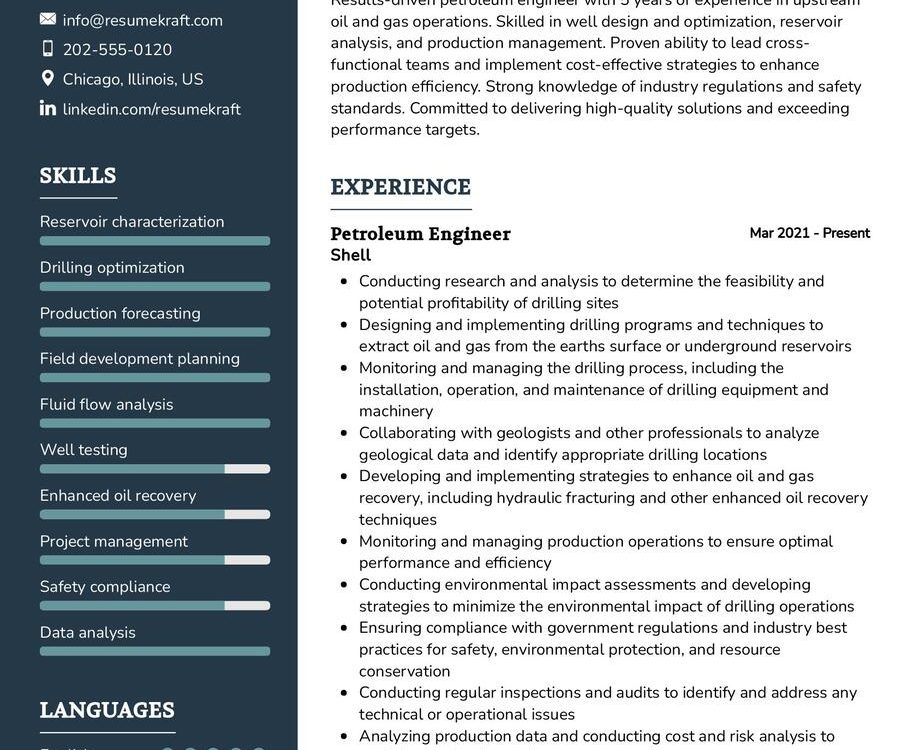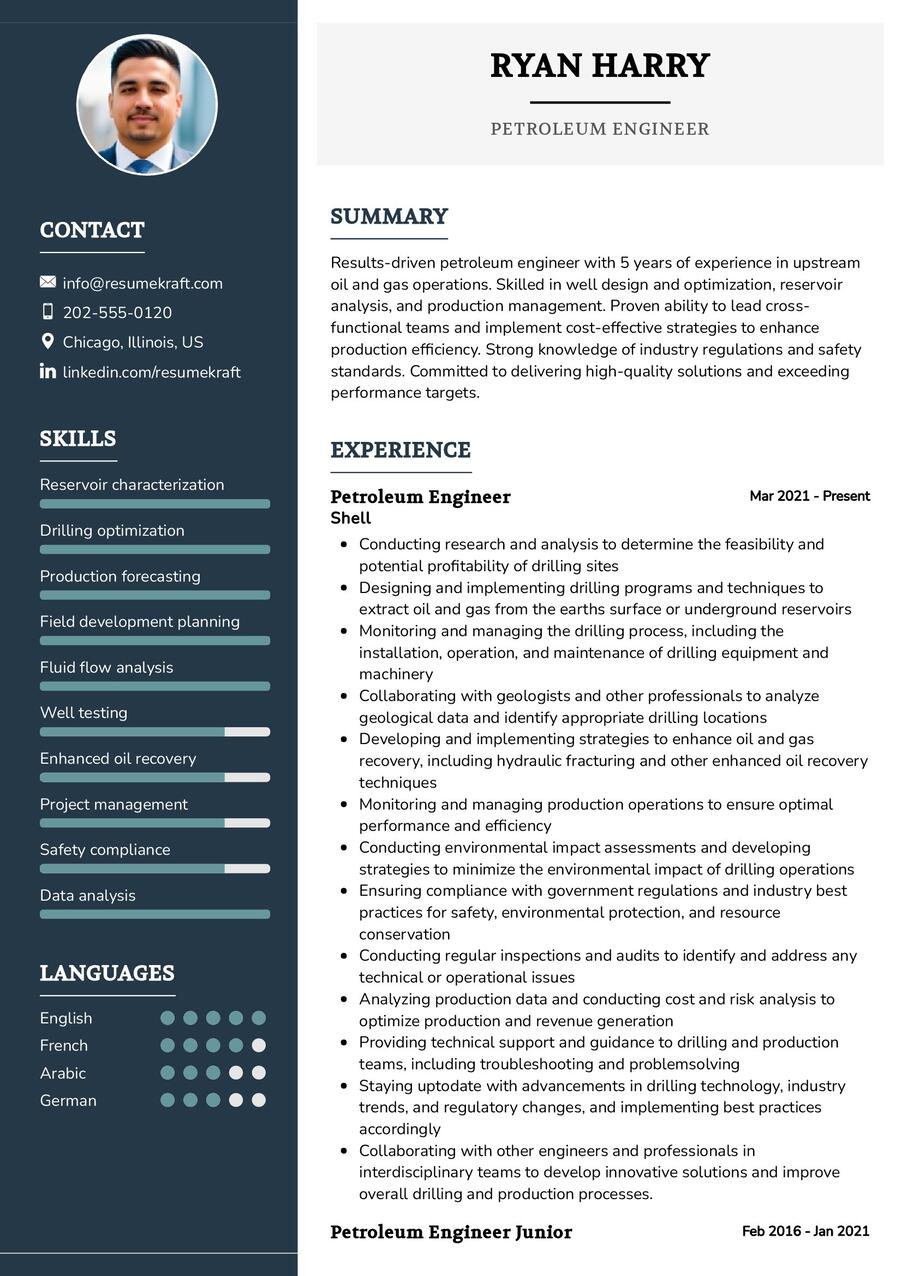Exploring the Role of a Petroleum Engineer
As the global energy landscape continues to evolve, the role of a Petroleum Engineer stands as a crucial component in the extraction and processing of hydrocarbons. This article delves into the multifaceted responsibilities and requirements of a Petroleum Engineer, a role that demands a unique blend of technical prowess, innovation, and problem-solving skills.
What are the Job Requirements for a Petroleum Engineer?
Becoming a Petroleum Engineer involves meeting a set of stringent requirements, shaping a journey that is both challenging and rewarding. Let’s delve into the prerequisites that one needs to fulfill to step into the shoes of a Petroleum Engineer:
- A Bachelor’s or Master’s degree in Petroleum Engineering or a related field, showcasing a strong foundation in the technical domain.
- In-depth knowledge of drilling techniques, reservoir engineering, and production optimization.
- Hands-on experience in conducting reservoir simulations and interpreting well test data.
- Strong analytical and problem-solving skills, honed through experiences in the field.
- Proficiency in relevant software tools for reservoir modeling and simulation.
- Excellent communication skills to collaborate with cross-functional teams and present findings to stakeholders.
- Adaptability and resilience, crucial traits for navigating the dynamic and challenging field of petroleum engineering.
Securing additional certifications in advanced reservoir engineering or project management can enhance your profile and marketability in the competitive job landscape.
What are the Responsibilities of a Petroleum Engineer?
The role of a Petroleum Engineer encompasses a diverse set of responsibilities, weaving together technical expertise, strategic planning, and environmental considerations. Let’s explore the core responsibilities that define this role:
- Designing and implementing drilling plans, ensuring efficient extraction of hydrocarbons from reservoirs.
- Conducting reservoir studies to assess the potential yield and performance of oil and gas wells.
- Collaborating with geologists and other engineering teams to analyze and interpret geological data.
- Optimizing production processes to maximize resource recovery and minimize environmental impact.
- Ensuring compliance with safety regulations and environmental standards in all engineering activities.
- Monitoring and evaluating well performance, implementing remedial actions as needed.
- Staying updated on industry trends and technological advancements in petroleum engineering.
Each responsibility comes with its own set of challenges and learning opportunities, contributing to the holistic development of a Petroleum Engineer.
Petroleum Engineer Resume Writing Tips
Crafting a resume that effectively showcases your skills and experiences is crucial in the competitive job market. Here are some tips to help you create a compelling resume as a Petroleum Engineer:
- Highlight your experience with specific drilling projects, emphasizing your role and contributions.
- Showcase instances where your optimization strategies led to increased resource recovery or improved production efficiency.
- Include metrics to quantify your achievements, such as increased well productivity or successful implementation of safety measures.
- List any relevant certifications, demonstrating your commitment to staying current in the field.
- Customize your resume for each application, aligning your skills and experiences with the specific job requirements.
Each tip is a step towards crafting a resume that reflects your expertise and stands out to potential employers.
Petroleum Engineer Resume Summary Examples
Your resume summary is the gateway to presenting your career story effectively. Here are some examples to inspire you:
- “Petroleum Engineer with over 8 years of experience, adept at optimizing drilling processes and ensuring efficient resource recovery.”
- “Experienced Petroleum Engineer specializing in reservoir engineering, with a proven track record in successful well optimization projects.”
- “Dedicated Petroleum Engineer with expertise in environmental compliance, contributing to sustainable and responsible resource extraction.”
Each summary is a snapshot of your journey, strengths, and contributions in the field of Petroleum Engineering.
Create a Strong Experience Section for Your Petroleum Engineer Resume
Your experience section is the core of your resume, where you narrate your career story. Here are examples to guide you:
- “Led drilling optimization initiatives, resulting in a 15% increase in well productivity over a two-year period.”
- “Collaborated with geologists on a high-profile reservoir study, providing key insights that influenced drilling strategies.”
- “Implemented safety protocols, achieving a zero-incident record over three years on multiple drilling projects.”
Each experience is a chapter in your career book, narrating tales of challenges met, solutions found, and successes achieved.
Sample Education Section for Your Petroleum Engineer Resume
Your educational journey forms the foundation of your career. Here’s how you can list your educational milestones:
- Master of Science in Petroleum Engineering, XYZ University, a journey of in-depth learning and specialization, 2016.
- Bachelor of Science in Chemical Engineering, ABC University, providing a diverse foundation for your engineering career, 2014.
- Professional Engineer (PE) License in Petroleum Engineering, obtained in 2017.
Each educational qualification is a stepping stone, leading you to success in your career as a Petroleum Engineer.
Petroleum Engineer Skills for Your Resume
Your skill set is your toolkit, equipped with a range of abilities acquired over the years. Here are the essential skills that a Petroleum Engineer should possess:
Soft Skills:
- Problem-solving and critical thinking, essential for addressing complex engineering challenges.
- Effective communication, vital for collaborating with multidisciplinary teams and presenting findings to stakeholders.
- Attention to detail, crucial for accurate reservoir assessments and drilling plans.
- Adaptability and resilience, important for navigating the dynamic and challenging field of petroleum engineering.
Hard Skills:
- Proficiency in reservoir modeling and simulation software, such as Eclipse or CMG.
- Expertise in drilling optimization techniques and well completion strategies.
- Familiarity with safety regulations and environmental standards in petroleum engineering.
- Data analysis skills, using tools like MATLAB or Python for interpreting well test data.
Each skill is a tool, aiding you in providing efficient and sustainable solutions in the field of Petroleum Engineering.
Common Mistakes to Avoid When Writing a Petroleum Engineer Resume
Avoiding common pitfalls is crucial when crafting your resume. Here are mistakes to steer clear of:
- Avoid using generic terms; instead, tailor your resume to highlight your unique fit for the Petroleum Engineer role.
- Don’t just list job duties; showcase your achievements and the impact of your contributions on drilling projects.
- Don’t neglect the importance of a cover letter; use it as an opportunity to connect with potential employers and convey your passion for petroleum engineering.
- Avoid technical jargon overload; ensure your resume is accessible to both technical and non-technical readers.
- Proofread meticulously to maintain a professional image; typos and errors can detract from your qualifications.
Avoiding these mistakes will contribute to crafting a resume that is both authentic and compelling.
Key Takeaways for Your Petroleum Engineer Resume
As we conclude this comprehensive guide, remember these key points while crafting your Petroleum Engineer resume:
- Highlight your achievements in drilling optimization and reservoir studies to showcase your impact in the field.
- Emphasize your technical proficiency, especially in using advanced software for reservoir modeling and simulation.
- Showcase strategic initiatives, demonstrating your visionary approach to petroleum engineering projects.
- Include a section on continuous learning, featuring certifications and courses that highlight your commitment to staying updated in the field.
Finally, feel free to utilize resources like AI Resume Builder, Resume Design, Resume Samples, Resume Examples, Resume Skills, Resume Help, Resume Synonyms, and Job Responsibilities to create a standout application and prepare for the Petroleum Engineer job interview.
Armed with these insights and tips, you are now ready to craft a resume that is a true reflection of your journey, your skills, and your aspirations. Best of luck!


